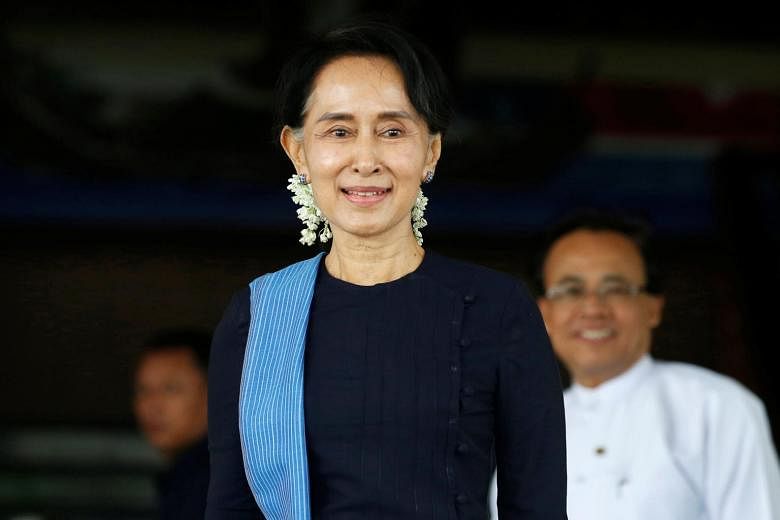NEW DELHI (THE STATESMAN/ASIA NEWS NETWORK) - For all her democratic protestations of concern over the persecution of Rohingyas, the Myanmar government's refusal to allow a UN fact-finding mission to investigate allegations of killings, rape and torture by security forces against Rohingya Muslims in Rakhine state reflects poorly on the leadership of Aung San Suu Kyi. Ironically enough, her stance is seemingly concordant with that of the junta's.
As the de facto leader of Myanmar's civilian government, short of President, and also its foreign minister, she has rejected the allegations and now opposes the mission that has been planned by the Geneva-based UN Human Rights Council. The flat refusal of the government in Naypidaw is in itself a mockery of human rights.
Sad to say, Suu Kyi is pretty helpless as she fears that she may have to pay a political price for speaking out. Contrived silence can have its costs, however. Having turned down the UN team's visit, she has in effect gone against the voice of the comity of nations.
The hope raised two years ago - at the time of transition from repressive military rule to a purportedly democratic regime - is in tatters. Indeed, her ability to achieve peace and rein in the junta is now open to question, more so with the official assertion that the country would refuse entry to the UN investigators.
Obviously, the world body would have exposed the almost relentless persecution that flies in the face of the certitudes of democracy that Suu Kyi had upheld not too long ago. She seems to be utterly helpless against the vicious crackdown on the Rohingyas by the Myanmarese army amid reports of mass arrests, the burning of villages, bar on journalists, aid workers, and international monitors.
The democratic change has made no difference to the pilght of the Rohingyas - they remain nowhere people on the border with Bangladesh, wandering from shore to shore in search of a home. The fact that some of them have fled to the Kashmir Valley in search of refuge might serve to exacerbate matters, given the inbuilt insecurity in that swathe of India.
The UN team's proposed visit can be contextualised with Amnesty International's indictment - "The army's callous and systematic campaign against the Rohingyas may be a crime against humanity". So indeed it is. The lifeline of the "nowhere men" in Rakhine has been severed; the military blockade has deprived them of food, water, and healthcare. Such brutality has served to undermine Suu Kyi's standing, after having led Myanmar since the party's resounding electoral triumph in 2015; not forgetting her famous victory in 1990, which led her to jail rather than the helm of the government.
The ethnic conflict does not speak well of her skills as a peacemaker.
Suu Kyi has failed to live up to her own rhetoric.
The Statesman is a member of The Straits Times media partner Asia News Network, an alliance of 22 news media entities.

